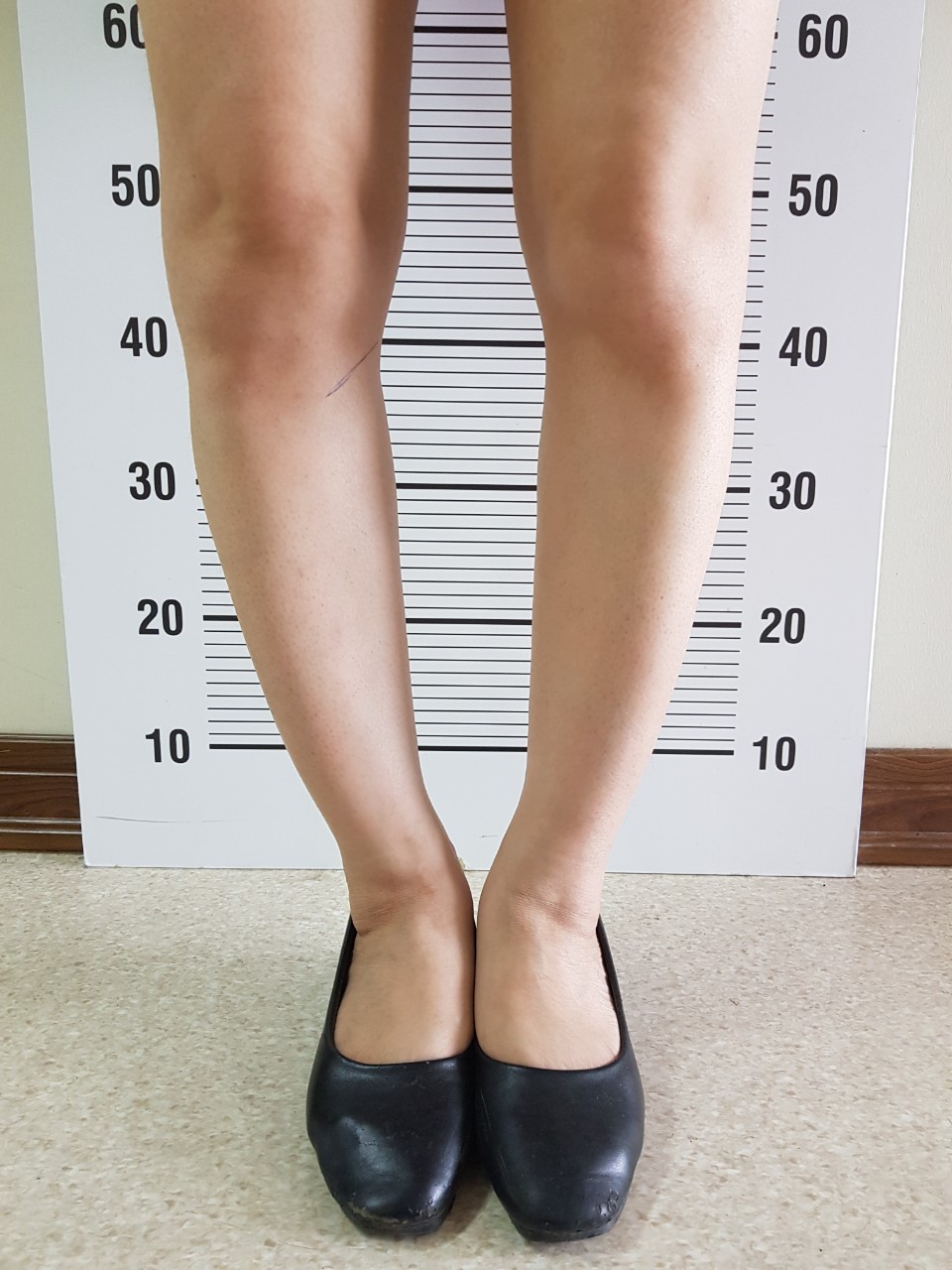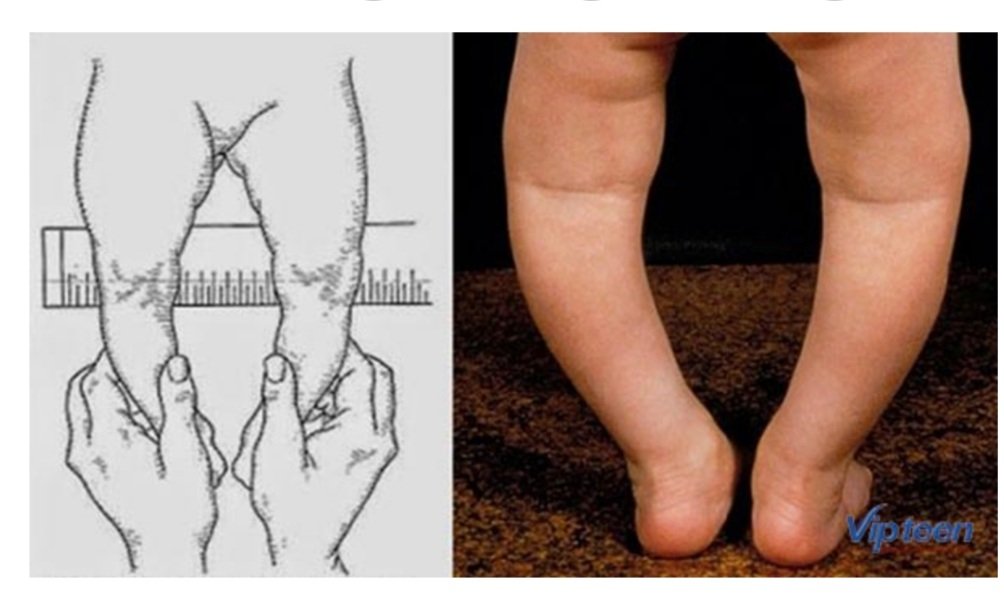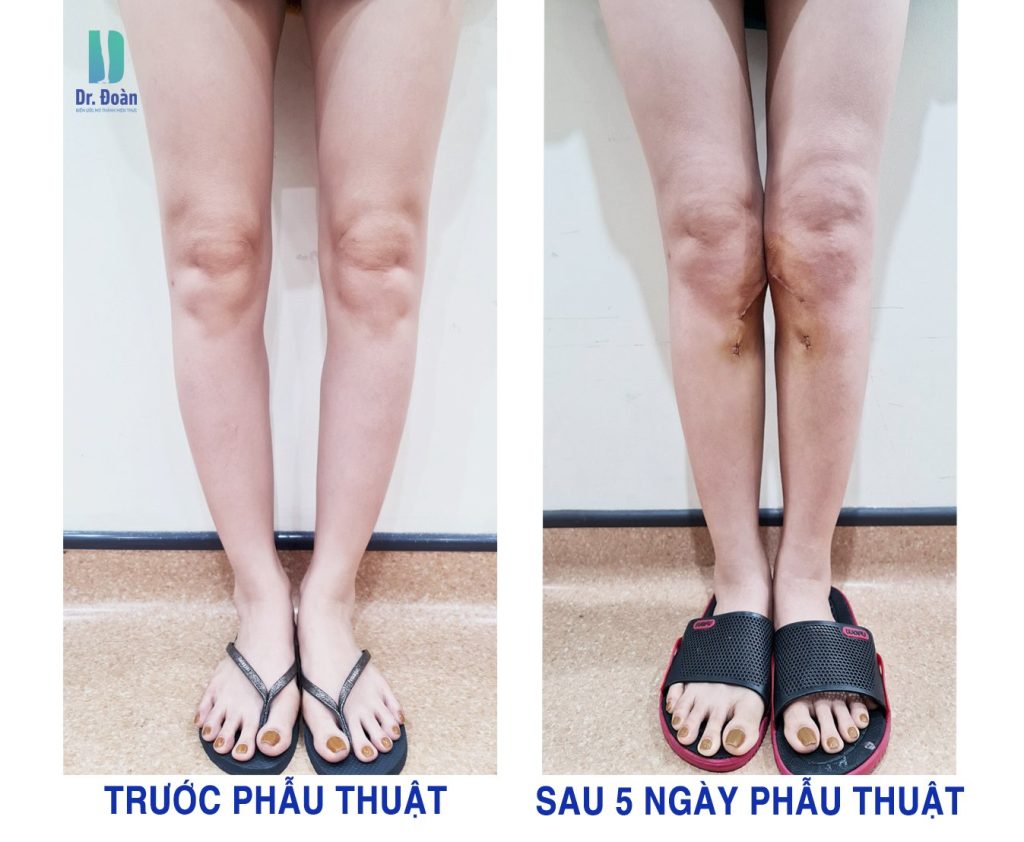What are bow legs?
Bow legs occur when the vertical axis of the legs are not straight resulting in the body weight being much eccentrically placed on the inner edge of the knee and ankle joints. The longer they go untreated, the more likely patients are to develop osteoarthritis in their knees and ankles. The legs of the patients can get increasingly malformed as they grow older. Due to severe degeneration, many patients of severe discomfort after 55 years of age required knee replacement surgery. As a result, surgery to repair bow legs not only improves the gait, but also helps to prevent and treat osteoarthritis of the knee and ankle.
Causes of bow legs
In fact, bow leg deformity is common due to many causes. It can be congenital or genetic. It can result from malnourishment, calcium, vitamin D and mineral deficiencies leading to rickets. Even obese children are also prone to have bow legs. Some other cases are caused by diseases, disorders of cartilage development, osteochondrosis at the ends of bones, etc.

When bow legs occur, the bone shafts deform, causing the knee joints to open inward. When this happens, the body’s gravity is not evenly placed on both the inner and outer tibial plateau, but mainly on the medial tibial plateau, so if not treated for a long time, it will lead to osteoarthritis of the knees. Therefore, after the age of 45, people with bow legs will often experience knee pain. After the age of 60, many even had to have knee replacements.
Aesthetically speaking, bow-legged people’s gait do not look good, so they always feel unconfident and inferior when wearing jeans or short skirts.
Therefore, patients with bow leg deformity should see a doctor as soon as possible to receive suitable treatment recommendations and avoid osteoarthritis consequences later on.
Depending on the age and severity of the deformity, each patient will receive an appropriate treatment method. For young children, parents need to take them sunbathing, and let them exercise and do sports regularly to strengthen muscles and musculoskeletal and joint systems,etc. Adequate nutrition, especially calcium-rich foods, in addition can be supplemented with nano calcium, vitamin D3, K2, etc. from supplements. Parents, in particular, must keep an eye on their overweight children’s weight. The deformity will be more severe the more obese they are.

For young children, the main treatment is rehabilitation exercises and orthopedic braces. In some cases of severe deformity, axial osteotomy or surgery is required to restrict cartilage formation and allow the bones to develop more evenly. Surgical intervention is required for those over the age of 18 to straighten the bone axis.
Furthermore, wearing wide-leg pants or skirts below the knee, rather than tight pants, is the simplest way to correct bow leg.
Surgical treatments to correct bow legs
Nowadays, there are many surgical methods of correcting bow legs in adults, each method has different advantages and disadvantages. Dr Doan has chosen the most popular method in the world, which is axial osteotomy, bone grafting and osteosynthesis using locking braces with outstanding advantages:
- When cutting the axial bone, it is done at the position just below the tibial plateau to avoid interfering with the knee joint. After surgery, almost all deformities will be corrected (90-95% for severe deformities).
- When cutting the axial bone and grafting bone into the defect spot, the height of the body is increased by 1.5-2.5cm.
- The bone is attached with a firm locking brace, so no cast is required. 2 weeks after the surgical suture is removed, the patient can start the rehabilitation process. After 3 weeks the patient can learn to walk with crutches. After 6 weeks, the patient can walk normally.
- The incision is short, approximately 4-5cm long, which ensures aesthetics.

In the following circumstances, surgical correction of the bow leg shaft is recommended:
- For young children: surgery is advised only when the deformity is severe and medical treatments are not effective.
- Medical treatments will not help adults over the age of 18, when their cartilage, bone, and joint systems have stabilized. Axial osteotomy should be replaced with artificial joint replacement surgery in adults over 55 years old since their bones begin to weaken.
Getting to know Bow Leg Surgical Procedure
Consultation
DIRECTLY
FROM DR. DOAN
Success stories






